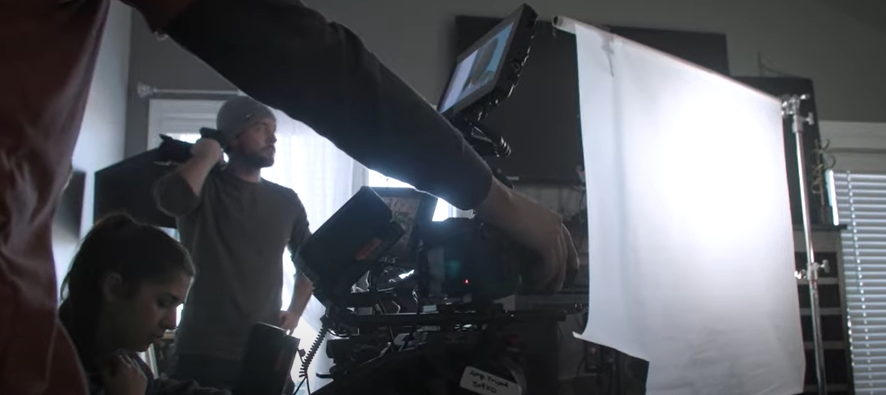Syracuse, Canon Collaborate on Documentary Film with AMLOS
Miles apart, two colleges were able to seamlessly collaborate using Canon’s AMLOS (Activate My Line of Sight) solution.

Last year, SCN caught up Milton Santiago, assistant professor of visual communications at Syracuse University’s Newhouse School of Public Communication, to discuss his use of Cannon's Activate My Line of Sight (AMLOS) technology in the classroom. Now, Syracuse is taking on Cannon technology on the road.
Syracuse, Cannon, and Universidad del Sagrado Corazón in San Juan, Puerto Rico collaborated enabling students to create a documentary film. The project was made possible through the help of technology provided by Canon, enabling students from both universities to work together to bring their ideas to life from ideation to execution. The resulting documentary, A Tale of Two Cities, will make its debut at the upcoming Syracuse Film Festival in Syracuse, NY, showcasing the students’ unique perspectives and collaborative efforts.
Under the guidance of faculty members Milton Santiago at Syracuse University and professor Harold Leonard Navarro at Universidad del Sagrado Corazón, students explored a topic of mutual regional significance. Despite the geographic distance between the two groups, they were able to seamlessly collaborate using Canon’s AMLOS (Activate My Line of Sight) solution and captured the documentary on Canon’s EOS R5C hybrid camera. Canon’s AMLOS solution facilitated real-time interaction, allowing the students to communicate in an engaging way to merge their unique perspectives and skills into a cohesive documentary project.
[An Invitation for Collaboration]
“Despite being geographically distant, the students at Syracuse and at Sagrado were able to rally around a common goal: telling an important story while raising awareness about a timely issue,” Santiago added. “In joining forces through storytelling, the work they have created will have impact beyond our academic walls.”
The benefits of Canon's technology extended beyond merely facilitating interaction. It empowered students to work together to merge their perspectives seamlessly to help them create a polished final product.
"The success of this project demonstrates that technology is an extremely powerful tool for collaboration across academic disciplines," said Navarro. "This experience has opened the door for future projects, bringing together students and faculty from diverse backgrounds in innovative ways."
A daily selection of features, industry news, and analysis for AV/IT professionals. Sign up below.
Students echoed this sentiment, emphasizing how the project made a profound impact on their learning experience.
“The experience that everyone got from this project is something that will leave a lasting impact on us,” said Jennifer Wybieracki, master’s graduate student at Syracuse University. “The collaboration between multidisciplinary fields is super important as we’re able to see how different industries operate and how we all contribute to the end product.”
Supporting this collaborative project underscores Canon’s ongoing commitment to fostering creativity and innovation across academic institutions.
“At Canon, we believe that technology has the power to transcend boundaries, whether geographic, cultural, or academic,” said Shinya Fukuda, SVP, Corporate Planning and Communications, Canon. “By supporting this cross-university collaboration, we’re proud to help equip the next generation of filmmakers and storytellers with the tools they need to not only share their unique perspectives but also to foster meaningful connections through creativity and innovation.”

The AVNetwork staff are storytellers focused on the professional audiovisual and technology industry. Their mission is to keep readers up-to-date on the latest AV/IT industry and product news, emerging trends, and inspiring installations.

